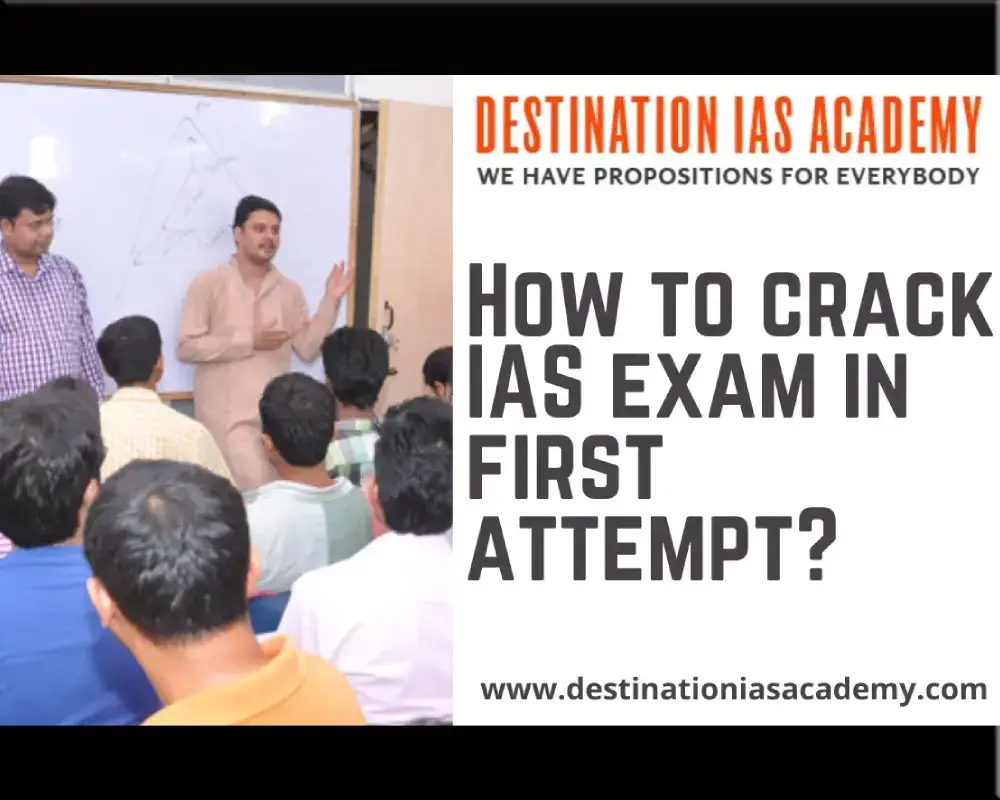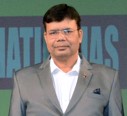
Email Us:destinationias@gmail.com
Call us:09911945480

Email Us:destinationias@gmail.com
Call us:09911945480

The Civil Services Examination is the most coveted examination in our country which gives you the golden opportunity to be a part of the team driving the nation. It gives you name, fame, power, prestige, reputation and plenty of scope to do something for the nation, expects you to be precise and focused on issues; to be analytical in a balanced way and to be capable of prompt and objective decisions in testing situations. During various stages of the examination, whether it be preliminary, main or interview, you are assessed for these qualities. Your academic qualifications take a back seat in the scheme of the examination. Therefore, do not fear about your profile insecurity that I am not from a big college, I’m not from English medium, and I don’t have work-experience, I did not get good marks in my academic education etc. A level playing field is offered for all irrespective of your qualifications.
There is no one best way to prepare for this examination, synchronous between your attitude and what UPSC wants from you is utmost necessary for this exam. In the course of time preparation becomes a Major Part of your life and it is important that you enjoy it. Understanding yourself in necessary as that will maximise your strength and help you work on your weaknesses. Keeping it simple is the Key. Complication creates pressure during exam cycle but Simplicity will gradually be rewarded.


NCERTs are necessary but not sufficient, though it is bible for the beginners in the initial preparation stage which in the due course of time requires a lot of value addition.
The following points should be kept in mind while doing preparation:
This is a test of your knowledge. It is usually a mix of easy, difficult and teaser questions. Teaser questions are those that appear to be easy but gets difficult when you solve them for example:
Ans. (a) is right, though all the options are correct. If this type of situation arises then look at the central theme of the topic like central theme of federalism is division of power, parliamentary form of government is based on fusion of power, presidential form of government is based on separation of power.
Ans. C. All options are correct but option c was the key around which everything moved.
The Main examination is the major scoring part accounting for 1750 marks out of the total 2025 on which your rank will be determined. It consists of seven papers besides, English and anyone Indian language and Essay and four each in General Studies and one optional – are to be attempted. It is definitely a daunting task. The UPSC has made its paper very dynamic in last few years. Now the ‘bookish’ questions have reduced greatly and analyse types have increased. No longer are they asking questions where information is the key determinant (even in the prelims). What matters is one’s opinion and analysis. This cannot be found in any one place or book therefore, internet should be consulted.
Scoring depends on the perfection of your answers. You may know everything covering the full syllabus, but answering the papers in time with precision is the art to be cultivated. Hence, do practice, set a full paper for three hours and write. If you are not able to complete in time, write again. Along with perfection of answers go time management. You may require lot of practice to achieve this.
A rough estimate of the word count per page makes it easy to check the word limits while writing the exam in real. Any shortcomings in these areas need to be corrected. Writing holds the key. How precise you write matters a lot.
Introduction: Catchy introduction which addresses the question head-on. It should reflect whatever you are going to write in the main body. The main body should be interlinked with introduction.
Background: Though it is not required in all types of questions, wherever it is applicable write to make your answer effective.
Main body: There is always apprehension in the mind of students either to write answer in points or paragraphs. I would suggest you to write brief paragraph and then link it with points.
Conclusion: It should be suggestive, futuristic, positive, innovative, creative and solution oriented. Do not write negative aspect in the conclusion.
Comment: Here you have to discuss the pros and cons of the matter and conclude
Evaluate: Here you have to analyse and find the implication.
Illustrate: write answer with contemporary relevant examples.
Explain/Describe: here you have to list out all the features of the matter
Critically assess/Examine: one has to combine the effects of comment and evaluate here.
Previous pattern of UPSC had little to do with time management as most of the questions were 30 and 20 marks. Now the pattern tests your clarity of thought, ability to express and the quickness in response times thus the Mains in itself is a Personality Test.
Essay writing is an art. It requires your creativity, imagination, innovation, analysis and opinion thereby examiner can easily judge your personality, traits and attitude. It is not much about knowledge test but your creativity, imagination and innovation. The major difference between essay and others papers is: While the other papers are based on knowledge and logic, essay is based on imagination therefore essay question never seeks factual answers.
Following points should be kept in mind while writing essay:
Interview is not only of 275 marks but it decides your rank in the final list. The UPSC has developed a habit of giving fewer marks in the main examination; difference between the highest scorer and cut off mark is not so high therefore good performance in interview can decide your fate. It is not based on luck; most of the questions of interview can be predicted and prepared well in advance.
Following aspects should be kept in mind while preparing for interview:
GENERAL STUDIES

Talk to Kailash Mishra Sir! 20+ Years Teaching Experience. 500+ Selection in UPSC. Free Guidance & Demo Classes.